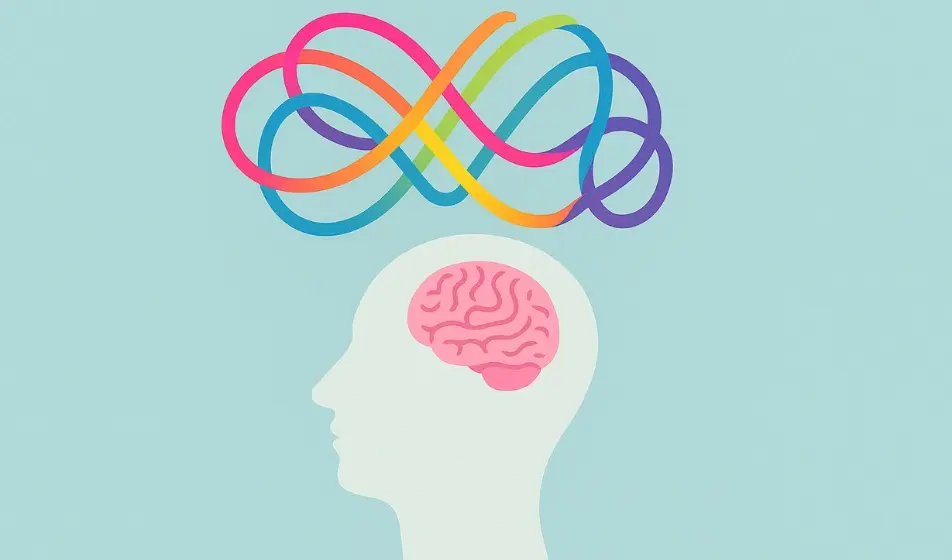If you're responsible for the HR or team management of an SME - you're in luck - this one's for you.
In this blog, we'll cover what Employee Assistance Programmes (EAPs) typically involve and more importantly, why they're so influential for businesses today.
If you're looking for ways to consistently manage and develop long-term business success, the best place to start is with your people. Come up with a plan to safeguard the health and wellbeing of your employees and invest in your company culture.
You can then use your health, wellbeing and culture plan to nurture your team and business - a great way to promote trust, confidence and resilience.
Skip to:
What is an Employee Assistance Programme & what does it do?
What are the benefits of an EAP?
What is an Employee Assistance Programme?
Employee Assistance Programmes help employees by providing an assessment & support for mental or financial problems employees might have.
EAPs help employers to provide:
-
Short-term counselling
-
Referral services
-
Health & wellbeing programmes such as guided meditation
-
Incentives or financial rewards & discounts.
What does an Employee Assistance Programme do?
As the title suggests, EAPs help employees deal with personal problems that might negatively impact their work performance, health and wellbeing. An EAP will most-likely involve assessment and short-term counselling; as well as referral services for employees and any of their immediate family.
In days gone by, employee health and wellbeing programmes were often only implemented by larger companies who had the cash to splash on looking after their people.
Fortunately, employee health and wellbeing strategies that encourage good physical and mental health at work are now well and truly part of HR and SME managers' goals. These kinds of programmes are fast becoming popular employee benefits. And with good reason.
What are the benefits of an EAP?
It goes without saying that employee health and wellbeing is an intrinsic cog in the running of any successful company. Staff that feel happy and secure are naturally going to inspire productive and smart work.
Moreover, including your people in the process for managing or overcoming health and wellbeing concerns reinforces both trust and respect. Two players that are vital for a successful business. According to our Espresso Report, employee welfare is one of the principal areas that needs addressing at work. The best place to start building up your business is from the inside, with the people who work there.
Understanding your legal responsibilities
As a UK employer, you have a duty of care to protect your team’s health and wellbeing. That includes their mental health.
This means doing what you reasonably can to create a safe, supportive working environment. That could involve reducing work-related stress, making reasonable adjustments for employees who are struggling, and making sure concerns are handled with care.
While an Employee Assistance Programme (EAP) isn’t a legal requirement, it can help you meet your responsibilities for employee wellbeing. It offers your team confidential support and shows you're serious about looking after them.
How much do EAPs cost?
In the UK, Employee Assistance programmes typically cost between £5-£15 per employee, depending on the type of programme you choose and what's included.
What are some examples of EAP support?
1. Counselling services
Balancing the pressures of work with the needs of home and personal life can seem like a mammoth struggle if you're working without enough - or the right - support. It's times like these that we could really benefit from an extra pair of caring hands. Counselling is one way to help employees and managers alike learn how to swim above water, even during the storm.
Employee counselling services play a vital role in helping to resolve workplace issues and understanding how to manage mental health issues.
Short-term, goal-oriented counselling is an ideal match for assistance within a professional setting.
2. Gym memberships
Staying active is important for living a healthy, happy life. To encourage staff to move more, some EAPs offer free or subsidised gym memberships.
Exercise is one of the main tools we have at our disposal to deal with mood disorders and mental health.
For the most part, staff who are fitter will have stronger immune systems. The knock-on-effect is that they’re less likely to need time off for illness and more likely to work firing on all cylinders.
3. Online resources
Many EAPs offer digital tools to support everyday wellbeing. These might include self-help modules, stress management content, or apps that give employees easy access to mental health support when they need it.
4. Workshops
We've found workshops that tackle stress, work-life balance and mindfulness are really popular for staff. From academic study to learning the benefits of laughing, breathing and dealing with anger to arts and crafts, workshops are a great way to build confidence at work.
-
Evaluate weaknesses
-
Source expert advice
-
Hold a lunch and learn
-
Encourage employees to attend - a good spread is great at getting people through the door
-
Note down key takeaways and try to implement learnings
Holding professional workshops is great for building individual confidence. Courses Mental Health First Aid can help staff spot and manage signs of workplace depression.
The right wellbeing support for your team
Overall, Employee Assistance Programmes can help you to support your team members as part of a people-first company culture.
The right EAP for your small business will be the one that provides the benefits your people value most. If you're considering an Employee Assistance Programme, it's a good idea to run a short survey to find out what benefits & types of wellbeing support your team would like (and would actually use). This will point you in the right direction when it comes to the selection process.
As a starting point, here's a list of Employee Assistance Programme Association-accredited providers.
Download Breathe's People First Culture Series: edition 1, wellbeing for free to discover key research, along with the types of wellbeing support SME employees really want.

Author: Aimée Brougham-Chandler
An IDM-certified Digital Copywriter (2023) & English Language & Literature graduate (BA Hons), Aimée is Breathe's Content Assistant. With 3 years' content marketing experience, Aimée has a passion for writing - and providing SME HR teams with solutions to their problems. She enjoys delving into & demystifying all things HR: from employee performance to health and wellbeing, leave to company culture & much more.




